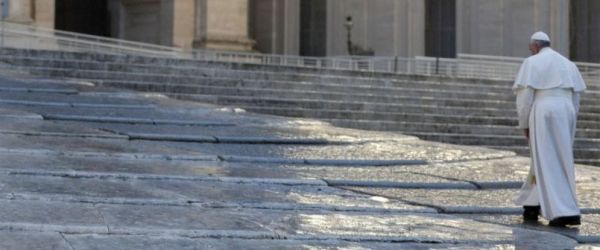A Church inspired by the figure of John the Baptist: who "exists to proclaim, to be the voice of a word, of his bridegroom who is the word" and "to proclaim this word to the point of martyrdom" at the hands of "the proudest of the earth". Pope Francis proposed it during the Mass celebrated in the chapel of the Domus Sanctae Marthae.
The Holy Father's entire reflection was centred on this parallelism, because "the Church has something of John", although - he warned immediately - it is difficult to delineate his figure. After all, "Jesus says that he is the greatest man who was born"; but if we then "see what he does" and "think about his life", Pope Francis noted, we realise that "he is a prophet who passed away, a man who was great", before ending tragically.
Here then is the invitation to ask ourselves who John really is, leaving the word to the protagonist himself. In fact, when "the scribes, the Pharisees, go to ask him to explain better who he was", he replies clearly: "I am not the Messiah. I am a voice, a voice in the wilderness'. Consequently, the first thing one understands is that 'the desert' are his interlocutors; people with 'such a heart, with nothing', the Pontiff called them. While he is 'the voice, a voice without a word, because the word is not him, it is another. He is the one who speaks, but does not say; the one who preaches about another who will come later'. In all this - the Pope explained - there is "the mystery of John" who "never takes possession of the word; the word is another. And John is the one who indicates, the one who teaches", using the words "behind me... I am not what you think; behold there comes after me one to whom I am not worthy to fasten my sandals". So 'the word is not there', there is instead 'a voice pointing to another'. The whole meaning of his life "is to point to another".
Continuing in his homily, Pope Francis then highlighted how the Church chooses for the feast of Saint John "the longest days of the year; the days that have the most light, because in the darkness of that time John was the man of light: not a light of his own, but a reflected light. Like a moon. And when Jesus began to preach", John's light began to fade, "to diminish, to go down". He himself says this clearly when speaking of his own mission: 'It is necessary that he grow and I diminish'.
Summing up, then: 'Voice, not word; light, but not his own, John seems to be nothing'. Here is unveiled 'the vocation' of the Baptist, the Pontiff affirmed: 'To annihilate oneself. And when we contemplate the life of this man so great, so powerful - everyone believed he was the Messiah - when we contemplate how this life annihilates itself to the darkness of a prison, we contemplate an enormous mystery". Indeed, he continued, 'we do not know what his last days were like'. It is only known that he was killed and that his head ended up 'on a tray as a great gift from a dancer to an adulteress. I think that more than that one cannot go down, annihilate oneself'.
But we know what happened before that, during his time in prison: we know "those doubts, that anguish that he had"; to the point of calling his disciples and sending them "to ask the question to the word: is it you or shall we wait for another?". For he was not even spared 'the darkness, the pain over his life': does my life make sense or have I made a mistake?
In short, said the Pope, the Baptist could boast, feel important, but he did not: he 'only indicated, he felt himself to be a voice and not a word'. This is for Pope Francis 'the secret of John'. He "did not want to be an ideologue". He was a 'man who denied himself, so that the word' might grow. Here then is the relevance of his teaching: "We as Church can ask today for the grace," the Holy Father hoped, "not to become an ideologised Church," to be instead "only the Dei Verbum religiose audiens et fidenter proclamans," he said, quoting the incipit of the conciliar constitution on divine revelation. A "Church that listens religiously to the word of Jesus and proclaims it with courage"; a "Church without ideologies, without a life of its own"; a "Church that is mysterium lunae, that has light from its bridegroom" and that must dim its own light so that the light of Christ may shine. Pope Francis has no doubts: "The model John offers us today" is that of "a Church always at the service of the Word; a Church that never takes anything for itself". And since in the Collect and in the prayer of the faithful "the grace of joy" had been invoked, and "the Lord had been asked to cheer this Church in its service to the word, to be the voice of this word, to preach this word", the Pontiff urged to invoke "the grace of imitating John: without ideas of one's own, without a gospel taken as property"; to be "only a Church that is a voice that points to the word, even to martyrdom".
[Pope Francis, St. Martha, in L'Osservatore Romano 25/06/2013].












